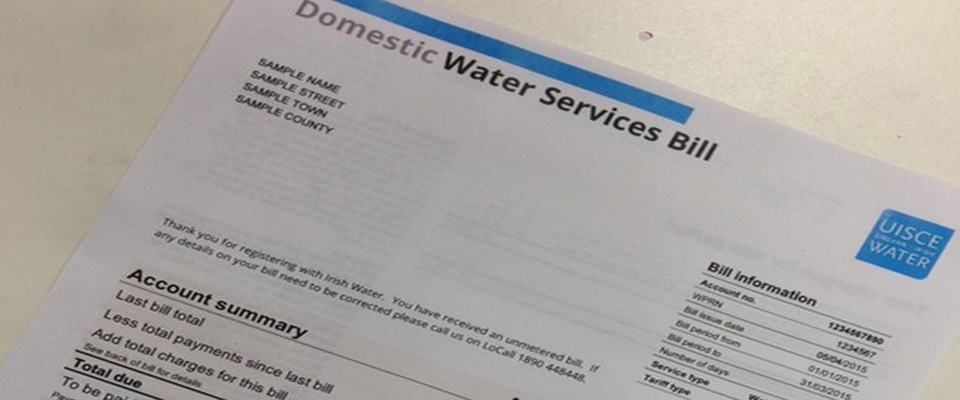Irish Water has said 61% of customers were paying water charges at the end of its third billing cycle, which covers the final three months of 2015.
This compares to a payment rate of 55% for the third quarter of 2015, and 44% at the end of the first billing cycle - which covered the second three months of last year.
The utility said 928,000 customers have now paid part or all of their bills, an increase of 98,000 customers who began paying charges for the first time in the past three months.
Total revenue from charges paid to date by domestic customers is €110.8m.
Revenue received by Irish Water during the last three months of 2015 was €42.3m, an increase from €38m in the second billing cycle (Q3 2015) and €30.5m in the first billing cycle (Q2 2015).
In a statement, it said: "Overall payment levels from bill cycle three therefore show both an increasing number of customers now paying water charges, and increased revenue received to help fund the repair and improvement of water services in Ireland."
Irish Water added that it plans to spend €522m on improving drinking water and wastewater quality and capacity, as well as repairing critical infrastructure.
As part of its infrastructure investment, over the past two years around 100 treatment plants have been upgraded, 500km of water pipes have been replaced, and 800,000 water meters were installed.
Meanwhile, the company will begin to apply additional charges to people in arrears from June of 2016.
Irish Water is also planning to apply attachments to homes in instances where the charges are unpaid.
This means a home owner would be unable to sell an apartment or house if the water bills were in arrears.
Under new legislation the company will also be able to apply for an order that would mean unpaid water bills could be deducted from the salaries or social welfare payments of householders in arrears.
Anti-Austerity Alliance TD Paul Murphy has disputed the figures, saying it is untrue that 61% of Irish Water customers paid their bills in the final quarter of 2015.
He said: "Trying to establish an accurate figure from Irish Water's statement is extremely difficult".
This compares to a payment rate of 55% for the third quarter of 2015, and 44% at the end of the first billing cycle - which covered the second three months of last year.
The utility said 928,000 customers have now paid part or all of their bills, an increase of 98,000 customers who began paying charges for the first time in the past three months.
Total revenue from charges paid to date by domestic customers is €110.8m.
Revenue received by Irish Water during the last three months of 2015 was €42.3m, an increase from €38m in the second billing cycle (Q3 2015) and €30.5m in the first billing cycle (Q2 2015).
In a statement, it said: "Overall payment levels from bill cycle three therefore show both an increasing number of customers now paying water charges, and increased revenue received to help fund the repair and improvement of water services in Ireland."
Irish Water added that it plans to spend €522m on improving drinking water and wastewater quality and capacity, as well as repairing critical infrastructure.
As part of its infrastructure investment, over the past two years around 100 treatment plants have been upgraded, 500km of water pipes have been replaced, and 800,000 water meters were installed.
Meanwhile, the company will begin to apply additional charges to people in arrears from June of 2016.
Irish Water is also planning to apply attachments to homes in instances where the charges are unpaid.
This means a home owner would be unable to sell an apartment or house if the water bills were in arrears.
Under new legislation the company will also be able to apply for an order that would mean unpaid water bills could be deducted from the salaries or social welfare payments of householders in arrears.
Anti-Austerity Alliance TD Paul Murphy has disputed the figures, saying it is untrue that 61% of Irish Water customers paid their bills in the final quarter of 2015.
He said: "Trying to establish an accurate figure from Irish Water's statement is extremely difficult".





